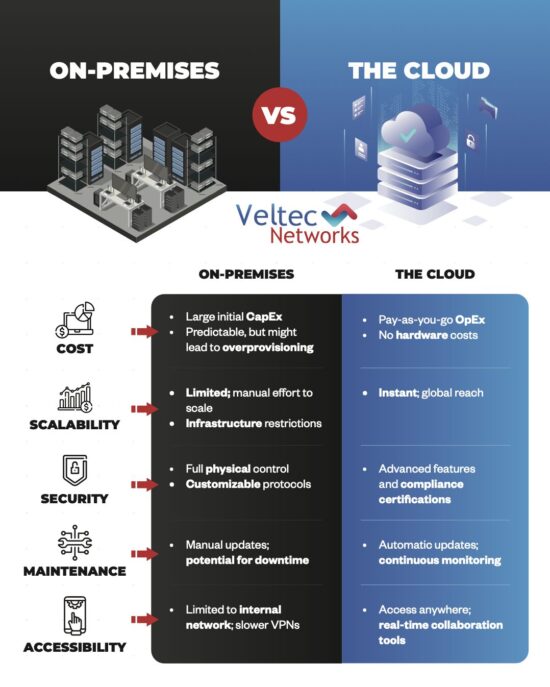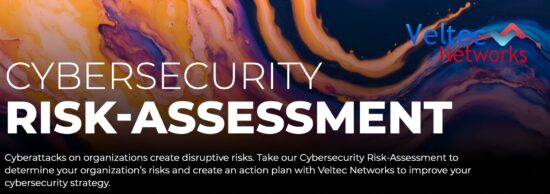Safeguard Your Data by Locking Your Computer and Other Devices
Key Points
- Cybersecurity starts with you. One of the most important things you can do to protect your information is to lock your computer and other devices when you’re not using them.
- Locking your device prevents others from accessing your information if you step away from your desk or leave your device unattended.
- Good physical security practices can help deter criminals and prevent data theft.

Protecting Your Organization’s Data By Locking Your Devices
Many things can go wrong regarding physical and network security in the workplace. From theft and vandalism, malware and viruses, to ransomware and phishing attacks, it’s important to be vigilant about the existing threats and takes steps to protect your devices and data.
There are some simple yet effective steps you can take to help safeguard your information. You might be surprised at how easy it is to implement these security measures. Before we go further, let’s address a few questions about the devices you use and the nature of the data you store and access.
- Do you have a BYOD (bring your own device) policy?
- Do you have company-owned laptops, smartphones, or other devices used for work?
- How many of these devices are connected to the internet?
- Is sensitive or confidential data stored on these devices?
Now, how many of those devices do your employees leave unlocked and unsupervised? You might be thinking, “not many, I hope.” The truth is that even a single unlocked and unsupervised computer or device can pose a serious security risk to your organization. That’s because all it takes is one person with malicious intent to walk by and access all of your organization’s data. Once that data is in the wrong hands, it can be used to commit fraud, identity theft, or other crimes.
So what can you do to protect your organization’s data? The simplest and most effective solution is to require employees to lock their computers and devices when they’re not using them. This may seem like a small measure, but it can have a big impact. Asking employees to lock their devices will make it much harder for someone with malicious intent to access your organization’s data. Requiring employees to use strong passwords will make it even harder for someone to access your data.
How to Lock Your Computer and Other Devices
Countless records are stolen or lost each year, and many of these records are not stolen from an external source but from an insider who had physical access to the device. Even if you think you can trust the people around you, it’s still important to take precautions and lock up your devices when they’re not in use.
Never discount the possibility of someone taking advantage of an opportunity to snoop or steal, no matter how well you think you know them. Failing to lock your computer may send a signal that it’s okay for others to use it without your permission. Not only does this put your data at risk, but it also gives attackers a way to gain access to your accounts and devices potentially.
It only takes a few seconds to lock your computer. To lock your computer in Windows 10 or Windows 11, press and hold the Windows logo key + L on your keyboard. Your computer will be locked until you enter your password to sign back in. To lock your computer in macOS, press Command + Control + Q.. This will lock your screen and require a password to unlock it. If you’re using a computer with biometric authentication (like fingerprint or facial recognition), be sure to enable it as an additional layer of security.
You should also lock your smartphone and tablet when not in use. Like with your computer, locking your mobile devices prevents others from accessing them if they’re lost or stolen. To lock your iOS device, go to Settings > Touch ID & Passcode and enable a passcode. Go to Settings > Security > Screen Lock for Android devices and select a lock screen option.
What Are The Consequences of Not Locking Your Devices?
- If you don’t lock your devices, your organization is at risk in many ways. Let’s take a look at some of the potential consequences of not locking your devices:
- Data breaches: If sensitive data is stored on an unlocked device, it can be easily accessed by anyone who walks by. This data can then be used to commit fraud or identity theft.
- Compromised accounts: If an unlocked device is used to access email, social media, or other accounts, a hacker could potentially gain access to those accounts. They could then use those accounts to spread malware, send phishing emails, or commit other crimes.
- Increased IT costs: If devices are left unlocked, it’s more likely that they will be lost or stolen. This can increase IT costs as your organization tries to recover lost data and secure devices.
We want our clients to get into the habit of locking their devices when they’re not using them. It’s a simple step that can go a long way in protecting sensitive information. You may be surprised at what type of havoc can be conducted with an unlocked device. Five minutes of unlocking your device can give an attacker plenty of time to access, copy, or delete sensitive data.
Need Help Locking Your Devices and Securing Your Data?
Sensitive or confidential data should never be stored on an unsecured device. If you must store sensitive data on a computer or mobile device, be sure to encrypt it. In today’s environment, there are people out there who want to steal your data, and it’s important to take steps to protect yourself.
Veltec Networks has the experience and expertise to help you secure your data. We can also help you develop and implement security policies for your organization. Contact us today to learn more about how we can help.






